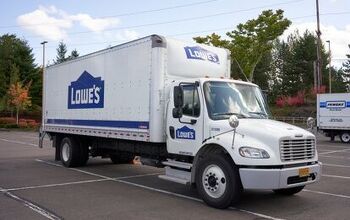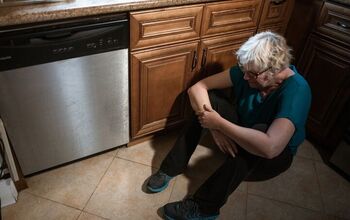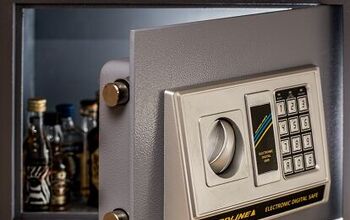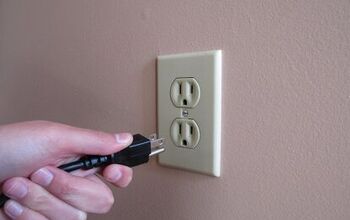10 Things To Consider Before Getting A Pet

Bringing a pet into your home can significantly enrich your life. That said, a pet comes with many responsibilities that are difficult to navigate at first. So, what should you consider before getting a pet?
Think about your work schedule and how much free time you have before getting a pet. You must also consider your family, other pets, and lease restrictions before you adopt a pet. It takes time to acclimate pets to your house, so make sure to set time aside for training.
Think about where you will be in life when your pets are 10-15 years old. Follow along as we explore 10 important things to consider before getting a pet.
What To Consider Before You Get A Pet
1. Your Schedule
It’s no secret that pets can’t take care of themselves, and that poses some challenges. For example, dogs need to be taken outside several times throughout the day. This is hard to accommodate if everybody in your household works full-time or goes to school.
In that case, you can’t guarantee that you can take your dog outside as often as is needed. This is less of a problem for cats who use litter boxes and don’t need to go outside. That said, you can use potty pads for dogs to relieve themselves when you’re gone as well.
However, dogs and cats alike need a lot of attention when you first bring them home. Because of that, it’s best to rescue animals when you have some time off. This gives enough time for you to form a great bond with your pet and tend to its needs.
2. The Size Of Your Home
How much space do you have at home? Whether you have a small apartment or a big house, it’s important to consider the size of your home before you adopt a pet. Animals need enough space to run, play around, and live comfortable lives.
You must also consider the size of your yard if you plan to adopt a dog. Granted, you can always walk your dog in parks if you don’t have a yard. The layout and contents of your home are just as important as how big it is.
For example, a 1,200-square-foot apartment can only accommodate a dog or cat if it isn’t cluttered. Clutter can limit its movements and make it easier for it to have accidents in your home. Carefully clean your home before you adopt a pet to give it plenty of space to thrive.
3. Budget
Owning a pet is more expensive than it may seem at first. You must pay for food, toys, accessories, vet appointments, and adoption fees. Medication for pets is also quite expensive, especially if you don’t have pet insurance.
Pet insurance typically costs between $35 and $70, depending on where you live and the pet itself. Cats require litter, litter boxes, and scratching posts. You can easily spend between $70 and $300 per month on your pet, but it could be as little as $40.
The worst-case scenario is that you must pay for your pet to have surgery. That can cost as little as $500 or as much as $8,000. Of course, it’s a necessary cost if your pet needs it, but these are important factors to consider.
4. How Many Pets You Have
Many animals can get along and even become best friends when they live together. However, many factors, such as timing and space, can affect how well they get along. For example, you may disrupt order at home if you have a 12-year-old dog and suddenly adopt a puppy.
They may get along, but your senior dog may have no patience for a hyper puppy. That said, you can take steps to slowly introduce your pets to minimize conflict. For example, it’s always a great idea to quarantine your new pet and take your time introducing them to each other.
It also helps to have someone else help you bring your pets face-to -ace with some separation between them. This can desensitize them to each other and help them pick up each other’s scents. Feed them separately and slowly give your new pet more freedom to roam your home over a few weeks.
5. Your Lease
Sadly, not every landlord will accept pets, and you can face penalties if you break the rules. Read your lease agreement to see if it mentions anything about pets. Most landlords charge pet fees of between $200 and $500, whereas others charge $25 per month.
Never bring a pet to your home if the lease stipulates that pets aren’t allowed. Otherwise, you may face eviction, and that’s not worth the risk.
6. Family Members
Homeowners with children must carefully consider what kind of pet they bring into their home. Large, aggressive dogs are rarely a great match for families with babies and small children. In that case, you may put your family at risk, especially if the dog has past traumas.
You may also want to get your family tested for allergies to make sure your children aren’t allergic to the pet. Cat allergies can be serious, so you don’t want to risk the chance of a bad reaction. It’s also worth it to get your family on the same page about who is responsible for which chore that your pet requires.
7. Free Time
How do you spend your free time? Many people understandably love to go out on the weekends during their free time. That means that your pet will likely be left alone for at least several hours, if not the whole day or weekend.
You must hire house sitters or drop your pet off at a boarding facility when you go on vacation. Boarding a pet is expensive and can even be stressful for the animals. Hiring friends, family members, and neighbors to watch your pets is a less stressful option, as your pet can stay at home.
8. It Takes Time
Many people mistakenly think that their pet will immediately adjust to their home. That’s not the case, and it takes time for an animal to become comfortable in a new environment. Don’t let this discourage you when you first adopt a pet.
Your new pet may understandably be scared when it first enters your home. Luckily, you can make it more comfortable if you ease it into the situation and avoid overstimulating it. It’s a great idea to talk to someone at an animal shelter before you adopt a pet.
Reputable shelters provide helpful information about an animal’s temperament before you adopt it. This can give you a strong sense of how it will behave and adjust to its new home. Be patient and do everything you can to make your pet comfortable during the trial period.
9. Your Intentions
The last thing you should do is adopt a pet on impulse. It’s worth it to spend weeks or months considering whether or not you are ready for a pet. Bringing a pet into your home when someone in your household is pregnant or you’re about to move can add unnecessary stress.
The average dog lives for 10 to 13 years and a cat can live for 12-18 years, on average. Think about whether or not you will still have the time and energy to provide for your pet in the future. Luckily, having a pet can make life at home much more comfortable if you love animals, so it shouldn’t be a hard decision.
10. Training
Training is another important factor to consider before you adopt a pet. This is more important for a dog, but a cat must be conditioned as well. Ideally, you should go to a professional to train your dog, as it can be hard if you’ve never had a dog.
This costs an average of $55 per class, but it can cost as little as $30 per class. You may only need 4 to 6 training classes, but it depends on your pet’s temperament. It also takes time to integrate the training into your life at home for the best results.
Summing It Up
You must consider your schedule, budget, and home size before getting a pet. Think about how you spend your free time and how much space you have at home. How many pets you already have at home is another factor to consider, as you must be careful when you introduce pets to each other.
Related Guides:

Nick Durante is a professional writer with a primary focus on home improvement. When he is not writing about home improvement or taking on projects around the house, he likes to read and create art. He is always looking towards the newest trends in home improvement.
More by Nick Durante























![10 Most Dangerous Neighborhoods in Baltimore [Updated]](https://cdn-fastly.upgradedhome.com/media/2023/07/31/9075655/10-most-dangerous-neighborhoods-in-baltimore-updated.jpg?size=350x220)



